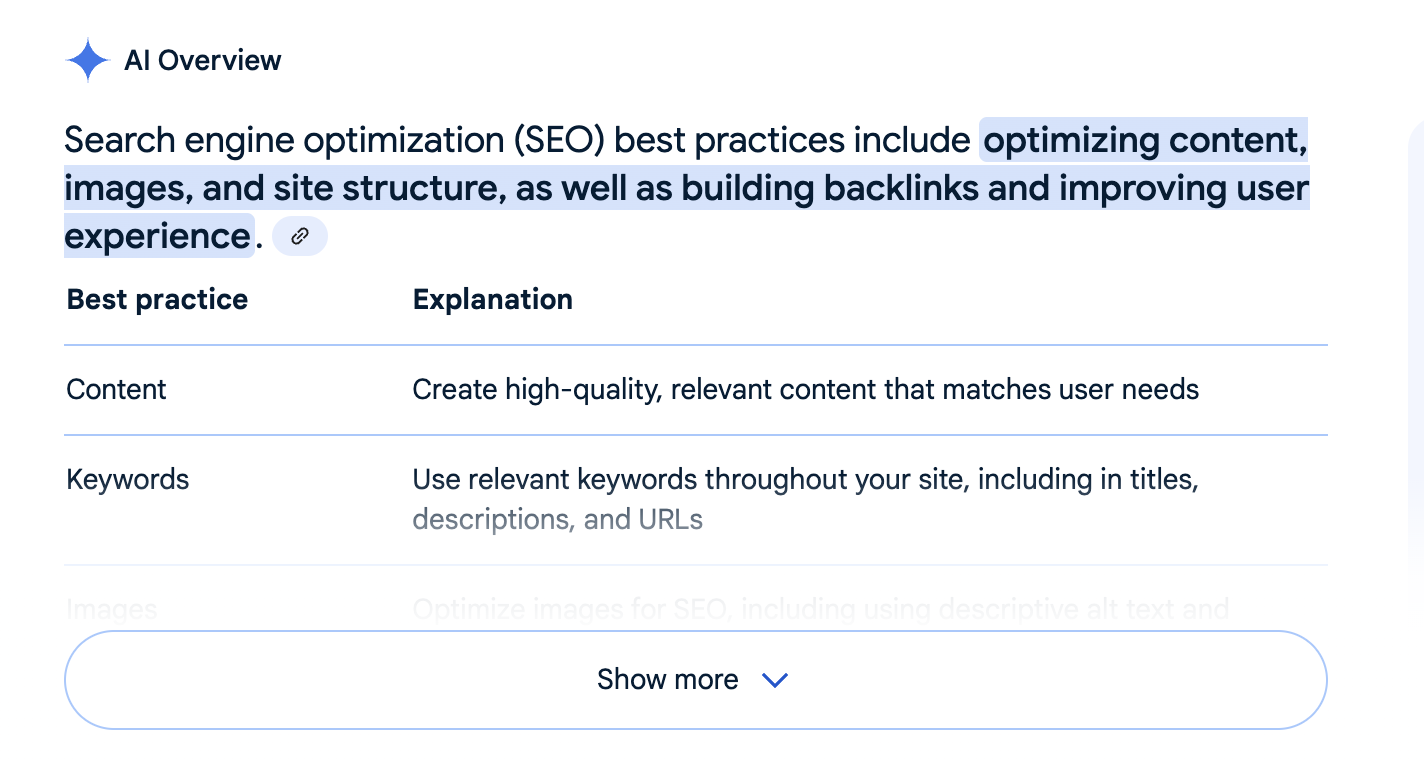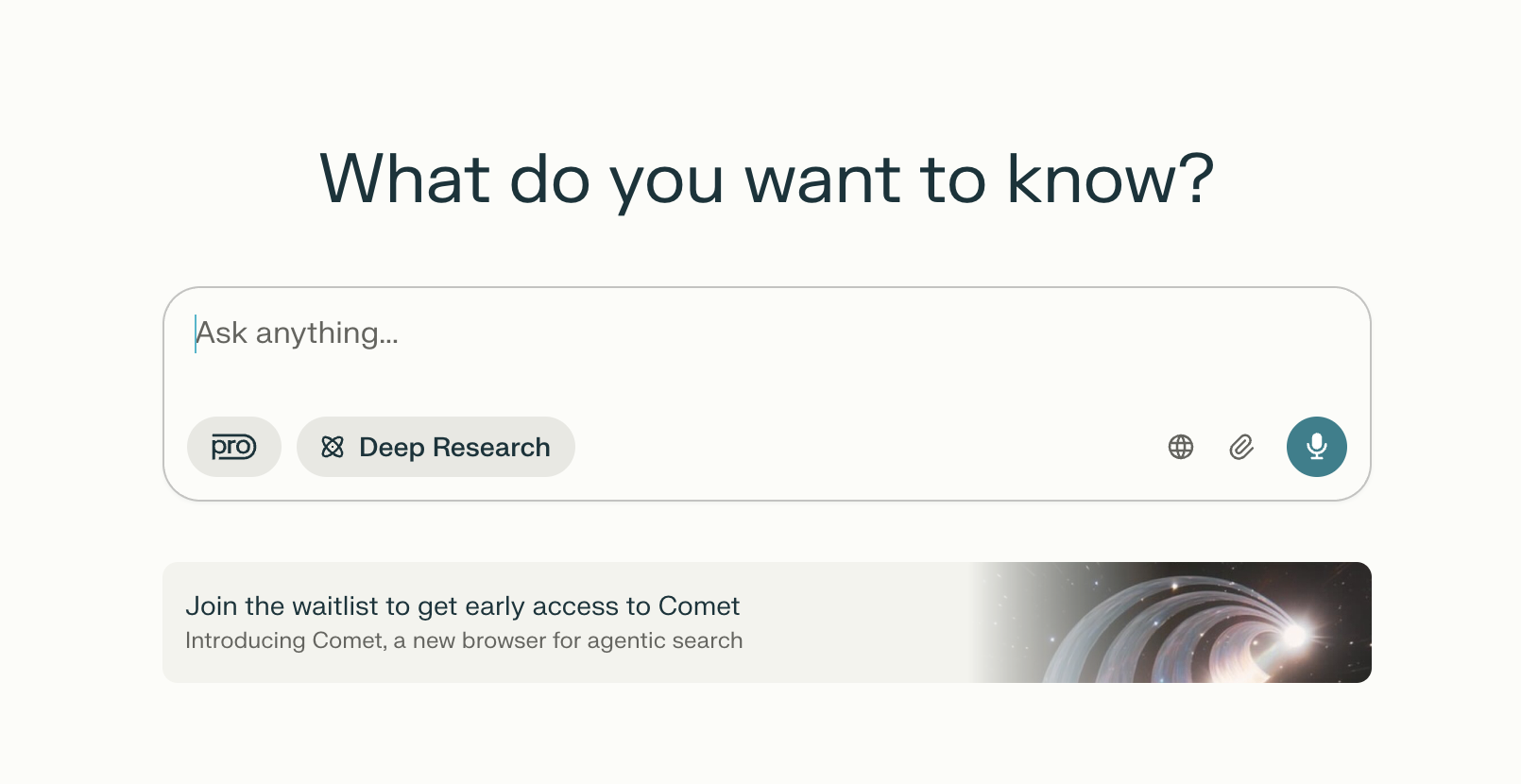
SEO Isn’t Dead, it’s Getting Smarter: What You Need to Know About AI-Driven Search
Let’s set the scene.
It’s 8 a.m. in Richmond Hill. You are a local interior designer sipping coffee and thinking about how to bring in more clients. Instead of heading to Google, you open up ChatGPT and ask:
“What are the top interior design trends in Toronto this year?”
Boom, you get a quick, well-written, and easy to understand answer with curated tips and links to local websites, including one from a blog you’ve never seen before.
Then what? That blog gets your click, your attention, and eventually, your business.
Welcome to the new era of SEO: where AI-powered searches are changing the rules and your old playbook might be holding you back.
A (Very Quick) SEO History Lesson To Stay Ahead
Before we dive into the future, let’s rewind briefly.
SEO used to be all about technical know-how: meta tags, alt text, robot files. Then came the age of keyword obsession, cramming the phrase “best pizza in Toronto” into every other sentence. But as Google got smarter, so did SEO. Search engines began rewarding real value, original content, user experience, and trust.
In previous blogs we have tackled these and more aspects of the SEO evolution that are still useful to know today, even if things are changing, Google searches ain’t going anywhere:
Check out our White Hat SEO and How to Dominate Search Rankings by Writing Valuable Content articles to become an SEO expert.
But now there’s a new player in the game: large language models (LLMs) like ChatGPT and Gemini, and search engines powered by AI like Google’s Search Generative Experience (SGE) and Perplexity.
And they’re not just tools anymore, they’re gatekeepers.
How To Rank Higher By Knowing How AI Search Picks the Winners

Let’s talk about what’s actually changing.
Google’s SGE is now answering complex queries with an AI-written summary right at the top of the results page. These AI summaries pull insights from multiple sources, linking the top ranking site to give users fast answers before they even scroll.
Perplexity takes it even further, acting more like a chatbot that cites its sources live from the web. And ChatGPT? With browsing enabled, it can serve up answers using current websites, even yours, if your content is high-quality enough.
What does this mean for your business? Your content isn’t just being ranked anymore. It’s being read, summarized, and repackaged by machines. LLMs are acting as intermediaries between your content and your audience.
So how do you win? By writing not just for your people, but for machines that read like people.
Using AI to Scale Without Losing What Makes Your Brand Unique

AI has made it easier than ever to scale content. Blog posts, product descriptions, topic clusters, it can all be generated faster than you can say optimize.
But there’s a catch.
These models have cut-off dates, for example, ChatGPT’s 4o model is only trained on data up to late-2023. They’re also prone to hallucinations (making up facts or sources), and if they don’t have browsing capabilities, they’ll rely entirely on what was published before their last update.
This is why you might see that ChatGPT’s suggest you take your fish for a walk when you ask why it has not been eating lately.
Ultimately, all of this means two things for your business:
- Timeliness matters. Be the fresh and accurate voice AI trusts (and shows first).
- Originality is gold. Google’s E-E-A-T update (Experience, Expertise, Authoritativeness, Trustworthiness) still stands. AI may summarize or rephrase information, but it still links to the best content, and that needs to be you.
Picture this, a Toronto bakery owner used ChatGPT to brainstorm blog topics about trending desserts. She added her own flavor (pun intended) with personal stories about baking for farmers’ markets and featuring customer faves.
The result? A sweet spot between AI efficiency and human authenticity, which Google took notice when ranking her and for its SGE AI summaries.
Tailor Your SEO Strategy Based on Who Actually Uses AI Search

While it is true that AI is becoming ever more important in our daily lives, how relevant it is NOW for your business will depend on who your target audience is.
Younger demographics (like Gen Z and Millennials) are already using AI search tools intentionally. They’re more likely to open ChatGPT, Perplexity, or AI-enabled Bing before even touching Google’s traditional results.
What about older audiences? Many still rely on the default Google search experience, where AI snippets are being shown without them even realizing it.
So yes, this shift is happening, but it’s happening faster for some audiences than others. However, no matter your target, being ahead of the curve now gives you the advantage when AI search becomes the norm.
Create Content AI Loves to Feature & People Love to Read

Here’s are 4 key tips to get ahead of AI trends that smart businesses are adapting today:
- AI Search Prioritizes High-Value, Sourceable Content: If Google’s AI is summarizing answers, it needs content to quote. That means writing pieces that sound like expert responses: clear, informative, and built around real experience.
- Content That Anticipates, Not Just Reacts: Predictive SEO is on the rise. Tools are helping agencies spot upcoming search trends before they peak. A Richmond Hill florist who writes a blog post about rare tulips before Mother’s Day is going to beat everyone else to the punch, and earn that AI summary spotlight.
- Demographic-Aware Strategy: Know your audience and how they search. A Shopify store targeting Gen Z should absolutely optimize for AI search. A law firm serving retirees? Maybe less urgent, but still crucial in the long run.
- Hybrid Human + AI Strategy Is the Sweet Spot: As one SEO expert put it: “The power lies in the combination of human and machine.” AI can handle the grunt work, outlining, research, summaries—but your strategy, stories, and emotional intelligence still win trust and drive conversions.
Write for AI, connect with humans, and win both.
Feeling Behind? Here’s How To Catch Up Fast
First, don’t panic. This isn’t about scrapping everything you know about SEO, it’s about upgrading it.
It’s okay if you feel overwhelmed though, you can always reach out to an SEO agency that understands both the human and machine sides of modern search.
But every day you wait, your content could be skipped by AI. Let’s fix that.
At MRKT360, we blend AI-driven insights with old-school strategy to help you:
- Create content that AI search engines want to quote.
- Stay ahead of shifting trends with predictive keyword tools.
- Build authority through authentic stories your audience (and Google’s SGE) will love.
Because let’s face it: even the smartest AI can’t meet you for coffee to discuss your goals. But we can.
Want to know where your site stands in this new SEO landscape? Contact MRKT360 and discover how to get quoted, ranked, and found in the age of AI search.
Book your free SEO audit today and future-proof your traffic.
